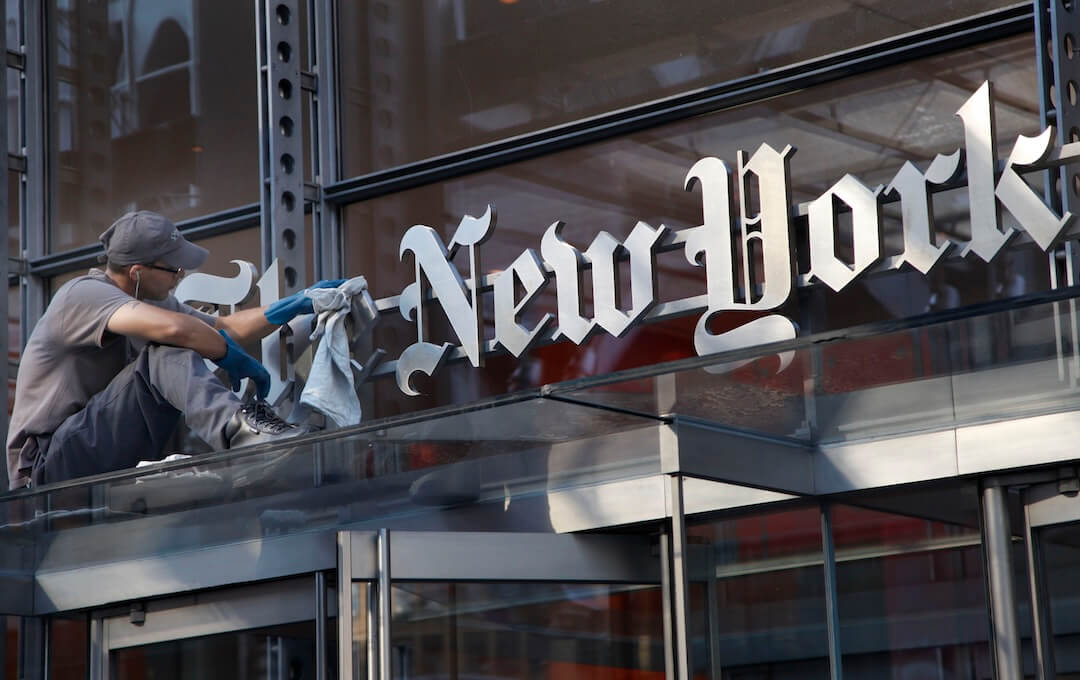Most U.S. fact-checkers supported Twitter’s effort to label President Donald Trump’s tweets on mail-in balloting, but all agree the social media company needed to be transparent about its process.
On Tuesday, Twitter added “Get the facts…” labels to two of the president’s tweets alleging mail-in balloting invites fraud. In an emailed statement, a company spokesperson said the tweets contained, “potentially misleading information about voting processes and have been labeled to provide additional context around mail-in ballots.”
“Why that tweet? Why not others?” said Aaron Sharockman, executive director of PolitiFact.
Some supported starting with a prominent figure like President Trump.
“Tweets and other content shared by these accounts are the fastest and most scalable way to spread,” tweeted Katy Byron, MediaWise editor and program manager.
PolitiFact and MediaWise are part of the Poynter Institute. Both are focused on fact-checking, but MediaWise also promotes and hosts training about media literacy.
[the_ad id=”667826″] [the_ad id=”667872″] [the_ad id=”667878″]
Others were not so sure.
“One thing we can say with certainty is that using President Donald Trump as your test pilot in the beginning of a presidential election cycle is fraught with risk,” said Geoffrey Ingersoll, founding editor of Check Your Fact.
Everyone agreed about transparency. Maarten Schenk, chief operating and technical officer for fact-checking network Lead Stories, said transparency allows the public to fact-check the fact-checkers.
“You don’t know who is doing the fact-check, you can also not check if they are biased or who is funding them or if they are qualified to make the judgments,” Schenk said.
[the_ad id=”667826″] [the_ad id=”667872″] [the_ad id=”667878″]
Sharockman of PolitiFact was sympathetic to Twitter’s efforts but acknowledged the importance of having clear guidelines.
“It’s impossible to design a system that everyone sees as fair, but if the rule book is available for everyone to read, at least everyone starts from the same spot,” Sharockman said.
Most were unsure what, if any, impact this would have on other social media companies. Bill Adair, Knight professor of the practice of journalism and public policy at Duke University, said he sees a trend toward tech companies putting more emphasis on misinformation.
“I think we’re seeing a snowball effect where more and more tech platforms are realizing that they should provide people with information about what’s true,” Adair said. For example, YouTube is implementing ClaimReview into its search feature.
The White House released its executive order Thursday evening, which attempts to reign in social media companies on speech moderation. The Trump administration is targeting Section 230 of the 1996 Communications Decency Act, which protects internet companies from legal liability for the content posted on their platforms.
[the_ad id=”667826″] [the_ad id=”667872″] [the_ad id=”667878″]
Schenk sees an irony in that order. He speculated that companies might take a more aggressive approach to speech on their platforms to avoid liability.
“I mean, an account with 80 billion followers tweeting medical misinformation and election misinformation, that will last two seconds,” Schenk said.
Fact-checkers outside the U.S. echoed their American counterparts’ sentiment for transparency, but Africa Check founder Peter Cunliffe-Jones acknowledged the difficulty of developing a policy that fits every nation’s context.
He used an example from the Democratic Republic of Congo, where a rumor about the first lady’s preferred style of dress led to attacks on women who did not conform.
“In many other contexts that specific type of claim wouldn’t necessarily have led to gender violence,” Cunliffe-Jones said. He suggested that local fact-checkers could provide Twitter with the expertise needed to navigate these thorny issues.
Late Wednesday night, Twitter unveiled its “civic integrity policy” intended to offer more clarity about how it will fact-check claims such as Trump’s going forward.
“This does not make us an ‘arbiter of truth,’” tweeted CEO Jack Dorsey in an apparent nod to a statement made earlier by Facebook CEO Mark Zuckerberg. “Our intention is to connect the dots of conflicting statements and show the information in dispute so people can judge for themselves.”
Harrison Mantas is a reporter for the International Fact-Checking Network covering fact-checking and misinformation. Reach him at hmantas@poynter.org or on Twitter at @HarrisonMantas







